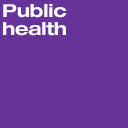Compulsory sex
education for five-year-olds will be demanded today by government advisers
on teenage pregnancy, as an essential step towards halving the under-18
concep tion rate by 2010.
The teaching of sex and relationships in primary schools is not
progressing fast enough to prepare children for the earlier onset of
puberty, the Independent Advisory Group on Teenage Pregnancy will warn
ministers in its annual report.
The advisers have been encouraged by a 10% reduction in the teenage
conception rate since 1998, and they attribute part of this improvement to
more confident teaching of personal, social and health education (PSHE) in
secondary schools.
But the government-appointed group is expected to say: "We are
disappointed this new confidence is not reflected in primary schools."
It will call for PSHE to be made part of the statutory curriculum at
all key stages of education from five to 16, with regular checks by
Ofsted, the schools inspectorate, on the competence of teaching.
Under the current rules, most state schools provide PSHE, but only the
study of citizenship in secondary schools is compulsory. Ofsted reports on
the emotional, spiritual and moral development of pupils, but there has
been no thorough study of sex and relationship education.
Gill Frances, deputy chairwoman of the advisory group, said: "We know
this is not properly assessed across all schools." But it was important to
start education about sex and relationships in the early years at primary
school.
Encouraging children to start talking about feelings and relationships
developed emotional skills that helped them to avoid teenage pregnancy,
sexually transmitted infection and drug taking, she said.
The advisory group will ask ministers to give statutory force to sex
education guidelines prepared by Ofsted. They say pupils by the age of
seven should be able to compare the external parts of the human body,
share their feelings and use simple rules for resisting pressure from
strangers.
By 11 they should be able to express opinions about relationships and
bullying, recognise their changing emotions, discuss moral questions and
know how to resist unwanted physical contact.
They should understand the physical changes that take place in puberty,
the need for love in stable relationships and the safe routines needed to
avoid the spread of viruses including HIV.
Ms Frances said the report would advise ministers to leave schools some
discretion over the pace of the sex curriculum: "There is no point in
pushing schools to do more than parents and the local community can
stand."
The advisory group is expected to call on the government to do more to
change the behaviour of hard-to-reach groups.
Proposals include a national information campaign targeted at boys and
young men, particularly from black and ethnic minorities, and an advert to
ensure under-16s know they have the same rights to confidentiality as
adults when they seek advice.




